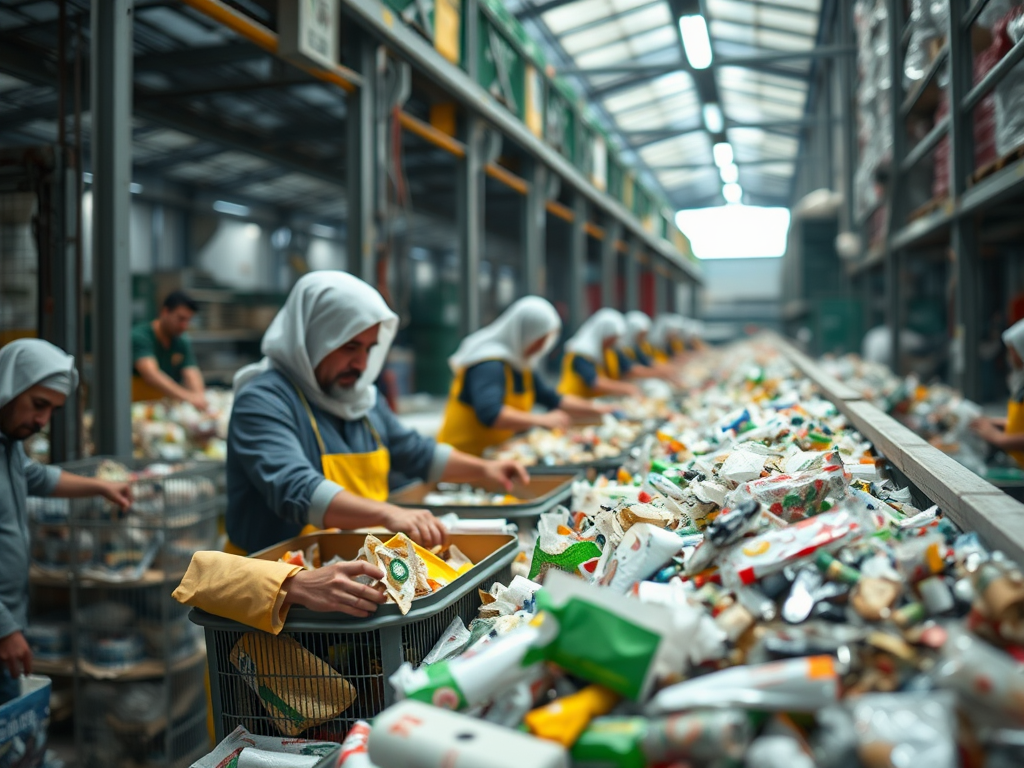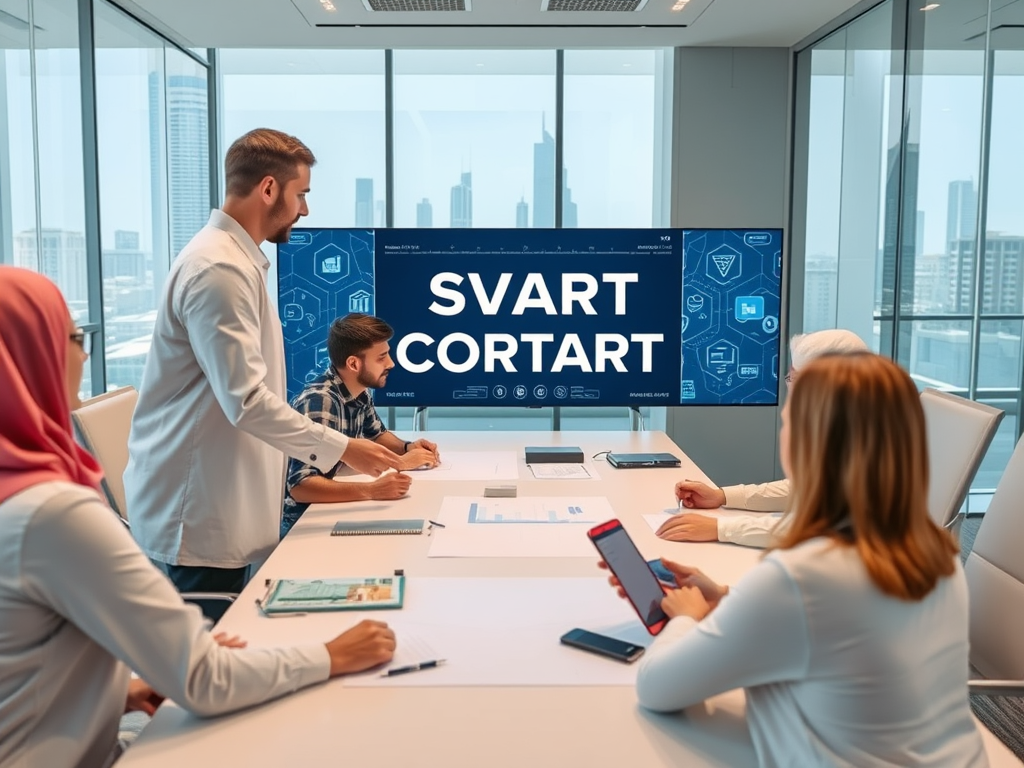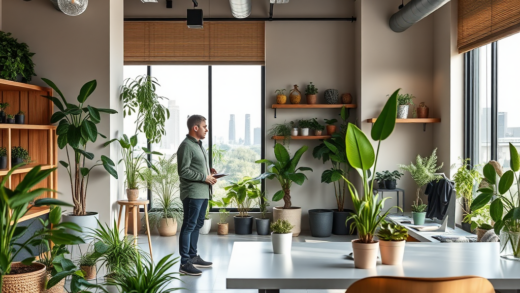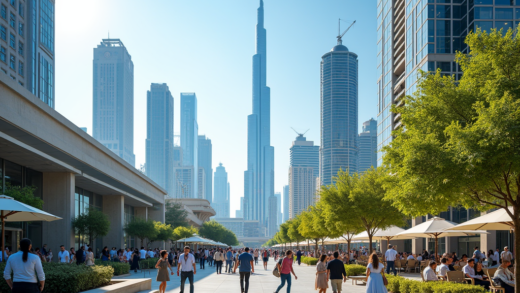Dubai is globally recognized for its innovative approach towards sustainable development, and blockchain technology plays a crucial role in shaping the emirate’s circular economy solutions. By integrating blockchain into various sectors, Dubai aims to enhance efficiency, transparency, and sustainability in resource management. This revolutionary technology facilitates traceability of materials, reduces waste, and promotes eco-friendly practices across industries. As Dubai positions itself as a leader in circular economy initiatives, the incorporation of blockchain provides a robust framework for achieving sustainable economic growth while minimizing environmental impact.
Understanding Circular Economy in Dubai

A circular economy is an alternative economic model that focuses on minimizing waste, maximizing resource efficiency, and creating sustainable systems. In Dubai, this approach is emphasized in initiatives such as the Dubai Circular Economy Strategy 2021. It aims to transform the emirate into a green economy which is both resilient and resource-efficient. The strategy outlines several key components:
- Resource Recovery: Utilizing waste materials through recycling and reuse.
- Eco-Design: Designing products with a life cycle approach to minimize waste.
- Product Life Extension: Enhancing longevity of products through maintenance and repair.
- Green Entrepreneurship: Fostering innovative businesses that adhere to sustainability principles.
- Regenerative Solutions: Restoring natural systems damaged by traditional economic activities.
This sustainable approach goes hand-in-hand with Dubai’s vision to enhance the quality of life while adhering to environmental commitments.
The Impact of Blockchain Technology

Blockchain technology revolutionizes the traditional economic frameworks by introducing decentralized systems that ensure transparency and security. In the context of a circular economy, it can significantly impact various sectors, including waste management, supply chain transparency, and product lifecycle management. The following are some major ways blockchain fosters a circular economy in Dubai:
- Enhancing Transparency: Each transaction recorded on the blockchain is immutable and traceable, ensuring all stakeholders have access to real-time data about resource usage and waste management.
- Facilitating Recycling Processes: Blockchain can streamline the recycling industry by providing transparent records that track the movement of waste materials, incentivizing recycling for participants.
- Enabling Smart Contracts: Automated contracts facilitate transactions based on specific conditions, making the process more efficient and less prone to disputes.
- Encouraging Sustainable Practices: By incentivizing eco-friendly behaviors through reward systems on the blockchain, it motivates individuals and businesses to adopt sustainable practices.
- Reducing Administrative Costs: The decentralized nature of blockchain reduces the need for intermediaries, speeding up transactions and lowering operational costs.
Several initiatives in Dubai demonstrate the successful integration of blockchain in promoting circular economy practices. One standout project is the Dubai Waste Management Strategy, which leverages blockchain to enhance the efficiency of waste disposal and recycling systems. Additionally, the Dubai Blockchain Strategy aims to make all government documents traceable through blockchain by 2021, which also supports resource management efforts. Other projects focus on tracking food waste management through blockchain technology, ensuring that surplus food can be effectively redirected to those in need while minimizing waste. These examples highlight how these collaborative efforts contribute significantly to Dubai’s sustainability goals and further reinforce the emirate’s position as a leading innovator in environmental solutions.
Итог
Blockchain technology is poised to catalyze meaningful advancements in Dubai’s circular economy initiatives. By providing enhanced transparency, efficiency, and security, blockchain addresses critical challenges faced by industries aiming to transition towards more sustainable practices. As Dubai continues to implement innovative solutions grounded in technology, its commitment to a circular economy paves the way for a greener future. The integration of blockchain can fundamentally change how resources are managed, promoting a holistic approach to sustainability that other cities may look to emulate. Ultimately, the success of circular economy solutions in Dubai will depend on ongoing collaboration between government, businesses, and communities to foster a culture of sustainability.
Часто задаваемые вопросы
1. What is a circular economy?
A circular economy is an economic model aimed at minimizing waste and making the most of available resources. It emphasizes recycling, reuse, and sustainability in production and consumption processes.
2. How does blockchain contribute to sustainable practices?
Blockchain provides transparent and immutable records that enhance traceability in supply chains, facilitate recycling processes, and encourage eco-friendly behaviors through incentives, thereby contributing to sustainability.
3. What are smart contracts?
Smart contracts are self-executing contracts with the terms of the agreement directly written into code on the blockchain. They automate transactions based on specific pre-defined conditions, reducing the need for intermediaries.
4. What are some examples of blockchain applications in circular economy?
Examples include tracking waste management, improving supply chain transparency, incentivizing sustainable practices, and facilitating smart contracts for eco-friendly transactions.
5. What initiatives does Dubai have for promoting a circular economy?
Dubai’s Circular Economy Strategy 2021 emphasizes resource recovery, eco-design, green entrepreneurship, and regenerative solutions, aiming to transform the emirate into a sustainable and resilient economy.


